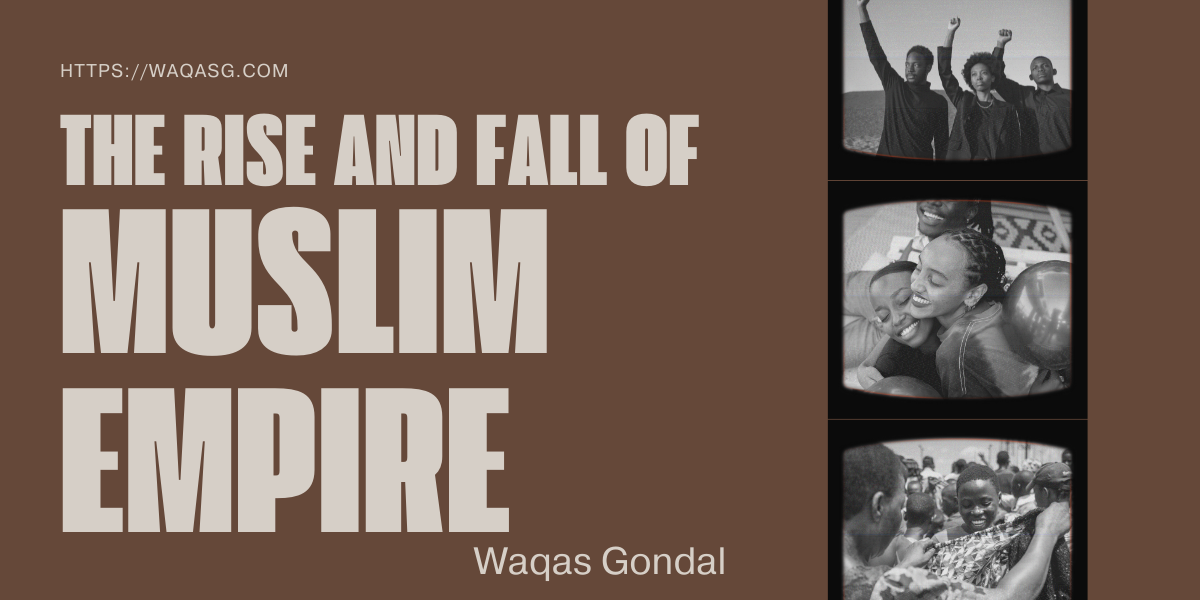The rise of an Islamic empire began in the 8th century.
Some decades back the Muslims used to dominate the world in general and philosophy, science and literature in particular. However, the things have had changed rapidly, due to the lack of discipline, unity and beliefs. Sectarianism is the major setback in the history of Islam. Therefore, the differences among the Muslim Ummah got wider and wider, and now it is the nature of the law to serve the masters.
Rise of Islam began with the Prophet Muhammad (peace be upon him) and his teachings; that spread over the world rapidly. The religion was meant for everybody in all parts of life, and is so. As the number of followers grow with the passage of time. The teachings of the prophet (pbuh) played vital role to form the culture, literature and dynasties.
As the religion spread in the east and west, the era of prosperity began. Some old civilization like Egyptian empire, Persian empire and Indus valley civilization helped to pave the foundation ground for the Islamic civilization in art, literature and and business.
Spread of Islam
The religion spread rapidly in the Indian Sub-continent with the invasion of Muhammad Bin Qasim. And it remain under the Muslim rule till the 17th century. After so the Muslim rulers failed to hold the steady ground.
The titular ruler Bahadar Shah Zafar says during the last days of his life in the the Burma so-called Myanmar Subho k badsha shaam ko mujrim thery, Hm ny nasibon ko you badlty bhe dekha hai. The time is to follow it’s course either one works for the betterment or kept his eyes close like pegions.
Muslim Scholars played crucial role to form the foundation grounds for the modern science and technology. The empire used to hold the biggest library in the Egypt. However, soon it was destroyed; due to lack of interest, security and above all lack of unity.
It is proved, Islam is the finest religion of the world. However, things went off-road with the quest to dominate the other states. Nowadays, most of the budget of the Muslim states is being spent on all other activities except Research and Development. As an anonymous wrote, ignorance do not have cure. By having these sorts of mindsets, this was bound to happen.
Some Well known Muslim Scholars
The list of the Muslim scientist is very long but some notable are Abu Nasr Al-Farabi (Alpharabius), Al-Battani (Albatenius), Ibn Sina (Avicenna), Ibn Battuta (Shams ad–Din), Ibn Rushd (Averroes), Muhammad ibn Musa Al-Khwarizmi (Algoritmi or Algaurizin), Omar Khayyam, Thabit ibn Qurra (Thebit), Abu Bakr Al-Razi (Rhazes), Jabir Ibn Haiyan (Geber), Ibn Ishaq Al-Kindi (Alkindus), Ibn Al-Haytham (Alhazen), Ibn Zuhr (Avenzoar, Ibn Khaldun and Ibn Al-Baitar.
The above-mentioned Muslim Scholars contributed in mathematics, science, philosophy and medicine. Without the contribution of the Muslim scientist the modern day science would not be like it is; thanks to the scholars.
Pakistan: The state of Turmoil
Lets have a look at the one and only Muslim Nuclear power state, the Pakistan, the state formed based an Muslim ideology. In the beginning, the things were smooth. However, with the demise of the Founder Muhammad Ali Jinnah and hastily drawn boundaries between India and Pakistan; the fate of the newly crated state took a dramatic turn.
Having a hostile neighbor like India, one needs to look after his own home. Therefore, since 1947, most of the budget is being spent on military. The education sector got only less share. Above all, corruption, nepotism and self-centered policies have made the situation worse.
In Pakistan, most of the citizens are ignorant by choice; their mindsets, culture and tribe never let them out of the rut. It is often said that the government servants are corrupts. Albeit the rest of the citizens are also like them. As the Islamic teachings says, Al-rashi wal mutashi, kila homa finaar.
The Way Forward
To sum up, it is the need of the hour to learn some lessons from past and work for the betterment of the world in general and for the Muslim Ummah in particular. And, it is only possible through the spread of education, elimination of ignorance and improving the research and development sector.
